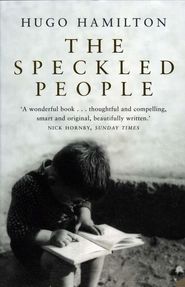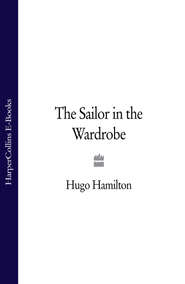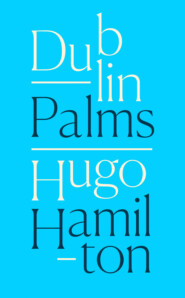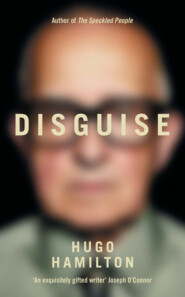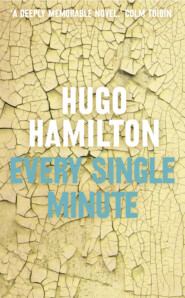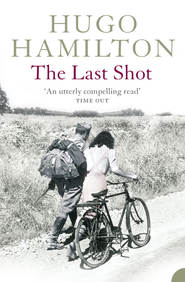По всем вопросам обращайтесь на: info@litportal.ru
(©) 2003-2024.
✖
Hand in the Fire
Автор
Год написания книги
2018
Настройки чтения
Размер шрифта
Высота строк
Поля
‘You remember nothing, right?’
He smiled at me, placing his hand on my neck.
‘OK, my friend.’
We were tied to each other now, though I couldn’t work out whether he needed me or whether I had become a dead weight around his shoulders.
He stopped to buy a newspaper, flicked swiftly through the pages, then showed me a small report on the incident which described the victim as a man in his early sixties who was the subject of a serious assault. He was recovering in hospital and the Garda were appealing for witnesses. They were looking for two attackers, believed to be non-national, of Polish extraction.
‘They have it all arse-ways,’ he laughed, throwing the paper into the back seat.
As he moved on again, I noticed that he had time to examine every woman we passed on the street. He spoke quite openly about what he liked and disliked, what turned him on and what he would never touch in a million years. He started telling me about his life, about Helen, about his family. Disposing of his biography, so to speak, in a single breath, like something he needed to leave behind rather than something he had grown into over the years.
I heard somebody once say that your childhood runs after you like a little dog. He started telling me things about his family that he wanted to get away from, confiding in me as an outsider who could be trusted, knowing that I would keep it all to myself.
His parents had met in London. They were probably hippies who couldn’t find enough drugs and rock music in Ireland and left the country. They were the last generation to leave on the boat, he explained, before cheap flights took over. People who felt stifled and compelled as much by the habit of leaving as by the excitement of arriving anywhere else. It was in the blood. They just did what so many did before them. He began his life growing up in England and only returned when he was around nine years old. With the troubles going on in the North, he explained, and the mistrust of Irish accents on the streets of London, his mother decided to make a go of it back in Dublin. Over the years, he had lost any trace of his English accent. And maybe this was why he understood my position so well. At school, he learned what it was like to be excluded and tried to mix in and camouflage himself. He did his best to be Irish. He was aware of the inadequacies that come with being a stranger and denied the early part of his own childhood, ignoring the dog running after him.
‘Never look back, my friend.’
He would repeat this phrase many times more. It was inscribed on every thought, on every decision he made.
‘You’ve got to be able to walk on out of it,’ he said. ‘Believe me. You can’t let yourself be dragged down.’
He was speaking out of my mouth, as they say. I agreed with everything he said for my own personal reasons, which had all to do with leaving and never going back again. He must have seen something in my situation that could perfectly explain his own, the story of his life described in mine. Like me, his aim was to escape. Only, he made it look like fun. All the bad things erased. Everything full of optimism and enterprise. Everything converted into a laugh. You could tell what made him so attractive to women, for instance, not only his striking good looks but also his ability to magnify the world around him into a great story.
His mother’s name was Rita, and right from the beginning I could see that he adored her. She was a born schoolteacher and you could hear the chalk grinding when she spoke. Her word was always final, with no remission. End of story. She had seen everything in life, including drugs and sex and anything young people could invent. It was all being repeated over and over down through the generations, just a new treatment, new lingo, new energy and new boredom. She took in the news and current affairs as though she could see it all coming. She reacted in the same way to her own misfortunes with stoic detachment, as though they were happening on the far side of the world.
He told me that she had a long memory. If you did something to her, she would never forget. For example. His little sister was initially called Eilish, after his aunt Eilish. But there had been a falling out, something unforgivable was done, and his mother changed the baby’s name to Ellis.
He said his father was a ‘waster’ from Connemara who had ‘fucked off’, leaving Rita to bring up three children on her own back in Dublin. She’d had the good fortune to inherit a house and was helped out by her brother, a priest, but it had not been easy to keep the family going. His father was the classic emigrant, the person who walked away but kept on singing about going home.
‘Homesickness,’ he said. ‘It’s like a disease. A psychiatric condition that people used to pass on to their children at birth.’
He could remember his father coming back from time to time on a visit. The family had tried to make a go of it once when Kevin and his sisters were small, but he left again, back to London. Kevin could recall him singing with his eyes closed. Speaking the old language, talking in Irish to his friends. But then he finally disappeared for good. The only contact after that was talking to him on the phone once or twice, before the money ran out in whatever coin box his father stood in. The line would go dead and all he would hear was the crackle of the rain on the other side.
‘Thing of the past, really,’ he said. ‘Homesickness. All that seeping nostalgia. It’s like polio. Or tuberculosis. Very rare these days.’
His father had written himself out of the family history. I was being written in. And maybe that’s what I longed for most, to be pasted into the family scrapbook, whatever the consequences. He was claiming me as his friend, offering me this precious information, but also conscripting me as a foot soldier, sworn in by an unspoken oath of loyalty.
When we arrived at the house, he introduced me to both his younger sisters, Jane and Ellis. His mother made a pot of tea and put some fresh scones on the table for us. I felt more like a guest than a worker. Kevin gave them my biography so as to avoid too much interrogation from his mother. Belgrade, parents died in a car crash, memory loss after the accident, came to Ireland to get a new start. No further questions.
‘Tragic, what happened there,’ his mother said, being polite.
Then he disappeared again and I began working upstairs in the bedroom. First of all I smashed up an ancient free-standing wardrobe which was listing to one side. I stacked the broken pieces in the back garden to be used for firewood. After that, I ran around to the local building supplier’s to collect some batons so I could start framing up for the new wardrobe, which was simple enough. It was not such a big job. The black ash panels were to be delivered during the week. I reckoned the whole thing would not take much more than a week or two in my spare time.
Later, while I was fixing the batons to the wall, his mother brought me a mug of tea and some biscuits. She was curious to see how I was getting on. And when I was finished, I made certain to clean up after myself, so that she would not end up walking on splinters in her bare feet at night. I brought the plate and the mug back down and placed them in the sink.
‘You’re a bit of a perfectionist,’ she said to me. ‘I can see that.’
‘Thanks,’ I said.
‘Not often you get that around here.’
‘Ah well. I do my best, I suppose.’
She owned a collection of tin, wind-up toys. A little boy on a bicycle. A duck on wheels with a windmill on his head. Tin mice. Tin frogs leaping and a tin carousel with tin children swinging. She showed them to me and allowed a few of them to spin around the kitchen table. I had to stop the duck on a bike from falling over the edge. We got talking, because these toys were not sold in the shops here on safety grounds, because of the sharp metal parts, bits of blades bent over to hold them together. But they were still found in markets and shops all across Europe where I come from. For adults only. Parental guidance, that kind of thing. I promised her that if I was ever back home in the near future, I would buy her one to add to her collection.
During the following week, I worked away at the shelving and began to discover a little more about the family. I’m not the kind of person who pries into other people’s business. I’m quite discreet. I do my work sort of blindfolded, you might say. But when you’re in somebody else’s house, you can’t help noticing things.
In the bedroom, her stuff was all temporarily stored on the floor. It wasn’t just a wardrobe she was after but a place to keep her documents. They were stacked up on top of each other against the bay window in boxes and large envelopes and folders tied with ribbon. Bits of newspapers from another time. Photographs. Wedding albums. All the evidence of her life, which she possibly didn’t want to look at very often but slept with every night, alone in the same room. It was now exposed on the floor, waiting to be put away again as soon as I had the new wardrobe finished.
I didn’t look at any of her personal things. I swear, it’s not like me to do that. But one evening, a bundle of letters fell down. The ribbon around them must have come undone and they were scattered all over the floor. It looked as if I was nosing through her stuff, and I had no option but to pick them up and put them back so they were in exactly the same order, as far as possible. Letters with her name on them. Rita Concannon. His mother came from the time of letters, before all the new technology took over. Even though she still looked quite young, the letters seemed to put her way back into an ancient era of handwriting and lots of time between things being sent off and delivered.
The letters, I could not help noticing, were sent from England, all sealed, all unopened, all unread.
What is it about letters in this country? I asked myself. An email or a phone message could be easily ignored. But letters seemed to have such substance. They were real. You could hold them in your hand, as I did, briefly. I wanted to know more about the person who sent them. I wondered if they had come from the absent father, the man who had excluded himself from the family. What terrible words did they contain and why were they never even opened? All those far-away things inside your head that can only be written down in a letter.
What a cruel archivist she was to keep them unread. She was the perfectionist, I thought, storing these precious handwritten letters, gagged and sealed, with no right of reply.
Anyone who lives in a foreign place must ask themselves that question all the time: Have they been forgotten? It made me wonder about myself. I was hoping that my presence here was not like this one-way correspondence, that I was not just a worker and that they would miss me, if I had to leave for some reason and not return again.
7 (#ulink_69587441-2b16-5dfa-92f5-49724da8b8a5)
The Garda officers came looking for me on site around lunchtime. With all the other workers eating their take-away food and staring at me, they asked me to confirm my name and address. Was my real name Vid or Vim? Was I a Polish national? They suspected I was trying to conceal my identity and wanted to see my passport, evidence of my work permit, which I did not have with me at the time and which I agreed to provide as soon as possible. But they needed to see it immediately. They were polite and took me to my apartment and then on to the station for further questioning.
At the station, they asked me to cast my mind back to a particular night and tell them whether I had been involved in an assault in which a man had been seriously injured. They gave me the date and the location and an approximate band of time in which the assault had taken place. They wanted to know about my movements on the night in question and asked me if I had made an anonymous phone call to a particular Garda station alerting them to the crime. They informed me that a man with a foreign accent like mine had reported seeing the victim lying in the street but then refused to identify himself. I told them I had not made any such call and that the incident had nothing to do with me.
‘That’s very strange,’ one of the officers said. They explained that the victim had claimed I was known to him, that we had met in a nearby bar on the night in question and that I had been seen in his company by several witnesses. It was reported that I had accosted his daughter and then subsequently, on the same night, assaulted him on his way home. He was recovering from multiple injuries, including a broken hip and a broken jaw. He was pressing charges against me, as well as another unknown Polish national who had yet to be identified.
‘Was it your friend who made the phone call?’ they wanted to know.
They asked their questions too quickly for me to think. It was a shock to discover that I had become the main suspect. I had no idea what to say to them. I denied that I had assaulted anyone. They asked me if I needed legal aid, but I let them know that I was already fixed up with a lawyer, so they allowed me to make a call.
Kevin arrived as soon as possible, dressed in a dark suit and carrying a brown case. He knew some of the officers and spoke to them in an informal way as though they were friends. He winked at me and we were given a chance to have a few words alone.
‘I know this is a bit of a shock, Vid,’ he said. ‘But listen, don’t worry. They’ll never get anywhere with this line of enquiry. They’re only groping around in the dark. You simply deny everything. You didn’t assault anyone. You have no recollection whatsoever of what they are alleging, am I right?’
‘I will have to tell the truth,’ I said. ‘I can’t lie.’
‘Nobody’s asking you to lie, Vid.’
He smiled at me and placed his hand on my shoulder. It was good to see him. His presence brought a great surge of confidence back to me.
I didn’t want to let him down either. He had stood by me. At last I had a friend and was beginning to feel at home here, so I couldn’t afford to lose that. But I felt so inadequate in front of the law. I was too honest. I didn’t have the knack of out-staring the questions and sneaking up on the facts. You had to be born with that kind of gift, like a good card player. I was a newcomer to the table, all nervous and unsure of myself, ready to bet everything on one hand and blurt out the unabridged truth.
‘You have the right to remain silent,’ he reminded me. ‘You understand that, don’t you?’
‘I’m afraid they will turn everything around with their questions.’






